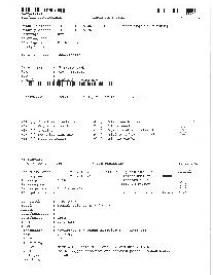Cross-lagged associations between posttraumatic stress symptoms and coping self-efficacy in long-term recovery : A four-wave comparative study
RATIONALE:
Trauma-related coping self-efficacy (CSE) - in brief, the perceived ability to cope with the aftermath of a traumatic event - has been shown to affect psychological outcomes. A previous study showed that CSE affects subsequent PTSS levels, but not vice versa among a sample exposed 0-6 months ago.
OBJECTIVE:
In this four-wave follow-up study we examined the cross-lagged relationships between CSE and posttraumatic stress symptoms (PTSS) among those exposed to PTEs (potentially traumatic events) 1-2 years before T1 in order to examine direction of influence. Research questions were: 1) what are the cross-lagged associations between CSE and PTSS levels among those exposed to PTE in the relatively long-term (1-2 years ago, called PTE long-term group), and 2) to what extent do these associations differ from the cross lagged associations among those exposed to PTE in the relatively short-term (0-6 months ago)?
METHOD:
Study samples consist of adult respondents of a representative internet panel who experienced a PTE between 1 and 2 years before T1, and did not experience any new PTE between T1 and T3 (long-term group, N = 438) and those exposed in the six months before T1, and not exposed to any additional PTE (short-term group, N = 400). Levels of CSE and PTSS were measured with 4-month intervals. In addition, prospectively assessed personality traits and peritraumatic distress were entered in the analyses.
RESULTS:
Structural equation modeling showed that CSE perceptions will continue to influence subsequent PTSS levels in the long-term, just as they did in the short-term. Contrary to the more short-term post-exposure period however, CSE levels do not just influence recovery from PTSS. Over time, degree of PTSS experienced also influences subsequent CSE perceptions.
CONCLUSION:
Results suggest that while trauma-related CSE perceptions are relatively robust in the short-term recovery period, they can be affected by posttraumatic stress in the long-term.
Geachte bezoeker,
De informatie die u nu opvraagt, kan door psychotraumanet niet aan u worden getoond. Dit kan verschillende redenen hebben,
waarvan (bescherming van het) auteursrecht de meeste voorkomende is. Wanneer het mogelijk is om u door te verwijzen naar de bron
van deze informatie, dan ziet u hier onder een link naar die plek.
Als er geen link staat, kunt u contact opnemen met de bibliotheek,
die u verder op weg kan helpen.
Met vriendelijke groet,
Het psychotraumanet-team.
In: Social Science & Medicine, ISSN 0277-9536 | 193 | November | 33-40
https://doi.org/10.1016/j.socscimed.2017.09.040


